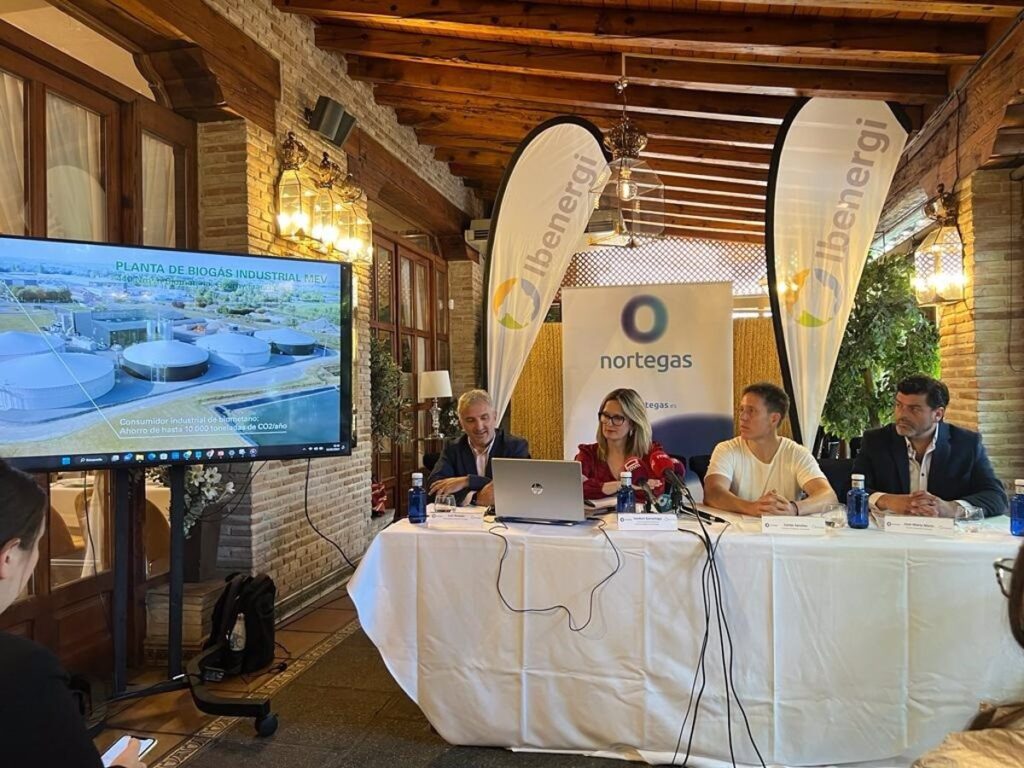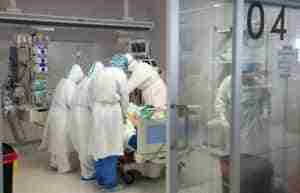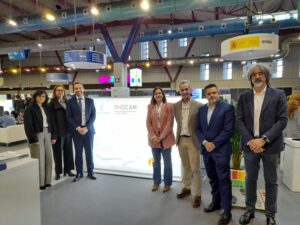Green Energy Solutions, a subsidiary of Nortegas Group, and Ibenergi Group are set to launch «one of the largest biogas plants at the national and international level» in Gálvez (Toledo). The plant will have the capacity to produce 100 GWh per year of biomethane to the natural gas grid, managing 350,000 tonnes of waste per year, equivalent to the average annual natural gas consumption of 20,000 homes, «through clean, renewable energy with 85% less CO2 emissions».
The project was presented in Toledo and was attended by Izaskun Gorostiaga, Commercial and New Business Director of Nortegas, and Carlos Sánchez, CEO of Ibenergi.
The plant, which will reach an area of about 70,000 m2, will be used for the production and upgrading of biogas from organic waste obtained mainly from the livestock and agricultural sectors, slaughterhouses, and wastewater treatment plants, with the final product having the appropriate characteristics for direct injection into the natural gas distribution network.
All of this will be done «in a stable, continuous, safe, renewable, social and environmentally responsible manner», as its activity will also be supported by a photovoltaic solar installation for self-consumption, according to a press release from the project’s promoters.
This biogas valorization and production plant, whose construction is expected to begin in late 2023, «will have a very positive impact on the local, regional and provincial economy, with an expected investment of €18 million and the creation of up to 50 new jobs, both direct and indirect».
Its location in Gálvez (Toledo) is «relevant», as this locality is one of the main pig farms in Castilla-La Mancha, thus contributing to the circular economy, since in addition to using agro-livestock waste to generate energy, the resulting material from the regeneration process is reused as fertilizer, minimizing the final waste.
Izaskun Gorostiaga, Commercial and New Business Director of Nortegas, has stated that «Nortegas maintains a firm commitment to the generation and distribution of renewable gases in the natural gas distribution network. We have a wide portfolio of projects that contribute and will contribute in the long term to the decarbonization of the energy sector. Among them, we have promoted the development of the first biogas plant in Spain, in Ólvega (Soria), designed from the outset for biomethane injection into the network, and a second plant in Valencia de Don Juan (León) that we recently presented to the public.»
The project in Gálvez «once again demonstrates Nortegas’ commitment to the energy transition through the development of alternative and sustainable sources of energy that strive for emissions reduction and decarbonization, bringing renewable gas-based solutions to customers who currently consume natural gas».
Carlos Sánchez, CEO of Ibenergi, has highlighted that «the time is now or never since the anticipated regulation on the application of manure in agricultural land will require, as is already being developed in Europe, a greater registration and monitoring of manure, will reduce the allowed nitrogen content per hectare, and will limit the use of urea, prohibiting its application without certified reports».
The plant will have all the systems that ensure a clean process without affecting the population and the environment. The handling, unloading, and digestion processes will take place at all times in closed environments, avoiding the current discomfort caused by waste decomposition, fermenting directly in the agricultural lands.
In addition, it will prevent the potential contamination of surface and groundwater caused by poor waste management; it will avoid the harmful effects derived from excessive nutrient accumulation in the physical environment; as well as the direct emission of CO2, CH4 and bad odors from these and other gases derived from the bacterial digestion processes of waste under uncontrolled conditions, also producing value-added products such as fertilizer and/or stabilized compost for livestock and farmers in the area of influence.
The impact of the construction includes the transplantation of existing olive trees in just two of the plots that will house the installation. There are no protected shrubs, flowers or woody species in the remaining affected plots, only herbs and bushes of no importance, according to the Environmental Impact Assessment presented.
The generation of biomethane will be carried out without chemicals and without the need to supply external fuel. In this case, the ultimate goal is to produce clean energy from raw materials such as manure, agricultural products, agroindustrial waste, cow manure, chicken manure, and others. This will improve the carbon footprint and generate renewable gas with neutral CO2 emissions, while also getting rid of bad odors, according to the project’s promoters.



















